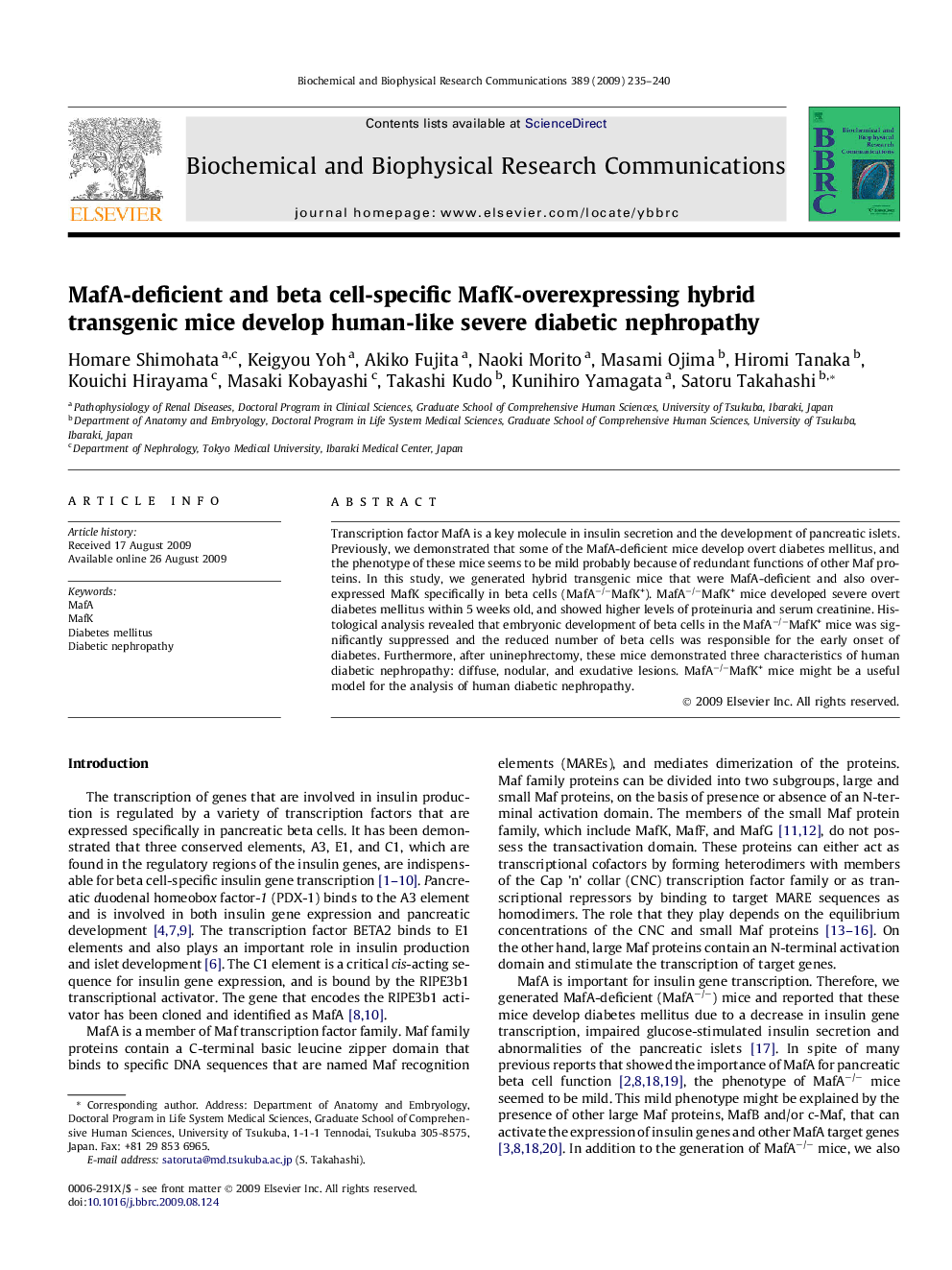| Article ID | Journal | Published Year | Pages | File Type |
|---|---|---|---|---|
| 1932706 | Biochemical and Biophysical Research Communications | 2009 | 6 Pages |
Transcription factor MafA is a key molecule in insulin secretion and the development of pancreatic islets. Previously, we demonstrated that some of the MafA-deficient mice develop overt diabetes mellitus, and the phenotype of these mice seems to be mild probably because of redundant functions of other Maf proteins. In this study, we generated hybrid transgenic mice that were MafA-deficient and also over-expressed MafK specifically in beta cells (MafA−/−MafK+). MafA−/−MafK+ mice developed severe overt diabetes mellitus within 5 weeks old, and showed higher levels of proteinuria and serum creatinine. Histological analysis revealed that embryonic development of beta cells in the MafA−/−MafK+ mice was significantly suppressed and the reduced number of beta cells was responsible for the early onset of diabetes. Furthermore, after uninephrectomy, these mice demonstrated three characteristics of human diabetic nephropathy: diffuse, nodular, and exudative lesions. MafA−/−MafK+ mice might be a useful model for the analysis of human diabetic nephropathy.
